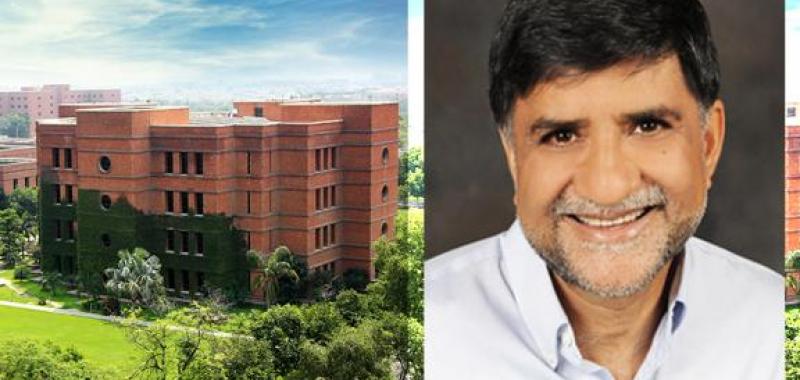
Dr. Tahir Andrabi, Dean of the School of Education at LUMS and a Stedman-Sumner Professor of Economics at Pomona College, USA says, “Any problem that you can think of in the world, improving education is going to help.” Supporting his conviction, Dr. Andrabi has conducted extensive research in the field of education with the aim to increase its reach in rural Pakistan.
He has published extensively in major economics and education journals. In 2007, his work on religious education in Pakistan received the George Bereday Award for the best paper published in Comparative Education Review in 2006 from the Comparative and International Education Society. He co-founded the website risepak.com to help coordinate relief in the aftermath of the October 2005 earthquake. The website was awarded the Stockholm Challenge Award (2006) for the best ICT project in the public administration category. His research has been covered by The Financial Times, Toronto Globe and Mail, USA Today, The Christian Science Monitor, Newsweek, The Economist, Foreign Policy and news media around the world.
He is the principal investigator on the four-year longitudinal study leapsproject.org on quality of primary education in rural Punjab funded by the World Bank and the National Science Foundation. He is also the PI on a National Academy of Sciences/Higher Education Commission, Pakistan grant on evaluating the recovery from the 2005 northern Pakistan earthquake.
Dr. Andrabi was featured in the June edition of Pomona College Presidential Update 2018. Here is an excerpt of the article featuring his research.
“What are we doing as researchers?” asks Professor of Economics Tahir Andrabi. “We are uncovering people’s stories and telling them to the rest of the world.”
For more than a decade, Andrabi and a team of researchers have conducted a series of economic surveys on education in Pakistan’s Punjab province. About 35,000 primary schoolchildren were tested in math, language, civics and other subjects, with report cards of the results distributed to their families and, for parents who were illiterate, explained at village gatherings and town meetings.
“Giving Pakistani families information improved their welfare as consumers of education,” says Andrabi. “It lowered the fees private schools charge and induced lower quality private schools to improve their test scores. Public schools responded to this information by raising their quality and increasing their enrollment. We are also finding that these effects persist in these villages even after eight years.”
The surveys also exposed some problems, including the difficulty of retaining teachers and the need for better training and better resources. For Andrabi, education is a “kind of ecosystem. It has teachers, textbook providers, policymakers, regulators. I can name 20 different actors,” he says. “Our job as researchers is to identify the frictions in all these relationships and to think about the barriers to innovation, so people can think about their solutions to their own problems.”
The initial problem for policymakers, says Andrabi, “had been how to get kids in school, particularly girls and the rural poor. As more children entered schools, construction increased and researchers started to notice that it was not enough. The demand for education, for women, for girls, the aspirations parents have for their children are very high. So the question now is how to respond to that need.”
Andrabi has been part of that response, traveling around the world and collaborating with colleagues in education and economics to “reimagine” a school of education. Invited by Pakistan’s leading philanthropist and a founding trustee of its largest private university to work on the project, Andrabi initially intended to lay the groundwork for the new school.
Instead, he is taking a sabbatical to become the inaugural dean of the Lahore University of Management Sciences School of Education, working with eight faculty members and 40 students in a master of philosophy program on educational leadership.
“Any problem that you can think of in the world, improving education is going to help,” says Andrabi, noting that a generation of Pomona students, who have worked with him on research, has helped pave the way for better education in Pakistan. “The great economist Alfred Marshall said, ‘The study of economics is the study of mankind in the ordinary business of life.’ I’m fascinated by people in the ordinary business of life. Change is going to happen with thousands and thousands of problems being solved by these ordinary people in their everyday lives.”








